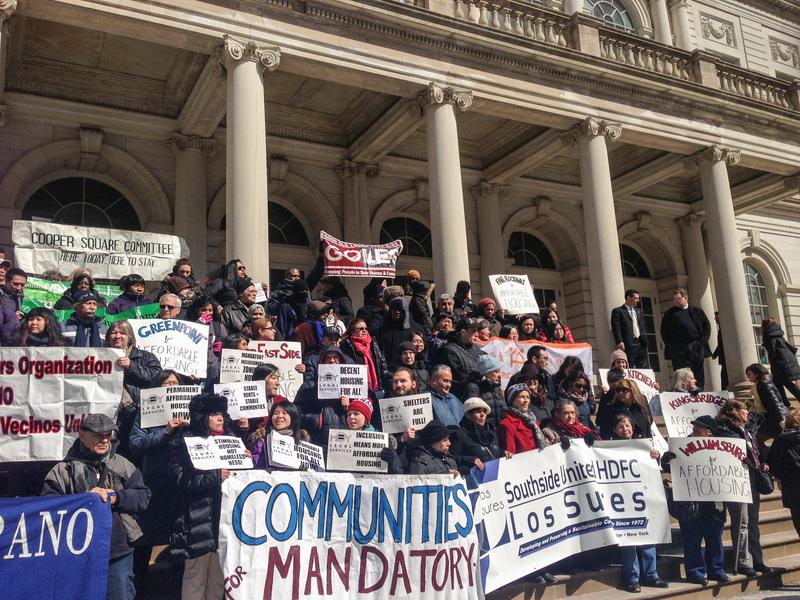
The 421-a tax abatement program offers developers tax breaks on new properties for up to 25 years in some instances, just to build in New York City.They are then often required to make 20 percent of their rental units affordable housing in exchange.
The program was created in the 1970s to spur development in what was then a broke New York City. But the program's costs have ballooned in recent years, despite attempts to reign it in. According to a report from the New York City Department of Finance, the program cost the city more than $1 billion in fiscal year 2014.
In the past, said WNYC's Janet Babin to WNYC All Things Considered host Amy Eddings, Sheldon Silver was instrumental in bringing all parties to the table to work out a deal that both housing advocates and real estate developers could live with. But he likely won't be around in June when the program will sunset without the reapproval of the state legislature.
So now, it's getting ugly. Affordable housing advocates are calling for a complete end to the program.
"It's a terrible deal. We spend $1 billion a year and for that we get about 15,000 affordable units," said Tom Waters, a housing policy analyst with the Alliance for Tenant Power.
But if you live in a rental, developers want you to know that ending this tax program will result in a reduction of available units, which could then increase the price of rentals.
"It would be a disaster for the city to stop the program, because the cost of construction is so high that without the tax abatements and low interest loans, you cannot afford to build," said Douglas Durst, chairman of the Durst Organization — a development firm which only builds rentals.
The Commission to Investigate Public Corruption, known as the Moreland Commission, in its December 2013 preliminary report, cited the 421-a property tax exemption program as one that exemplifies the sometimes-questionable relationship between large donations and legislation that specifically benefits large donors. It asked why a number of luxury buildings were able to take advantage of the tax incentive program in 2013, even though they didn't appear to qualify for the exemption.
The program was also named in the criminal complaint against Silver. That's emboldened advocates, who never much liked the program in the first place.
The real estate industry, though, doesn't consider dissolving the program as a serious solution to the city's housing issues. Some in the industry feel like housing advocates keep whimsically changing their minds.
"Our housing crisis is serious, so should our solutions be," said Steven Spinola, president of the Real Estate Board of New York, or REBNY.
